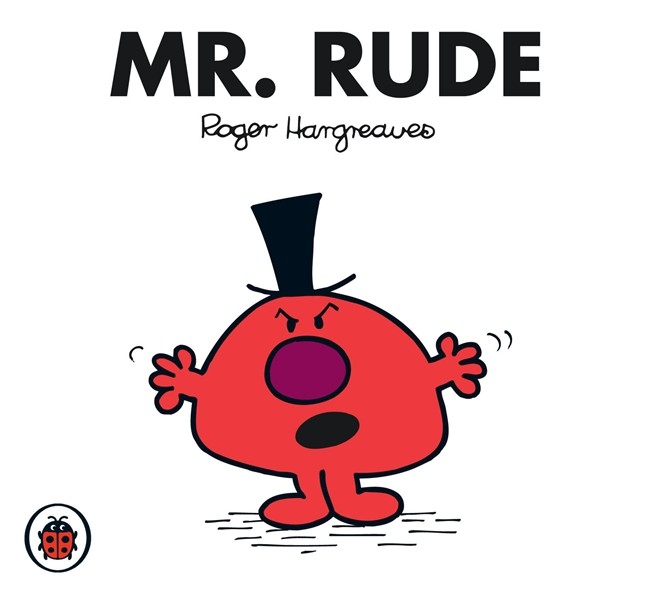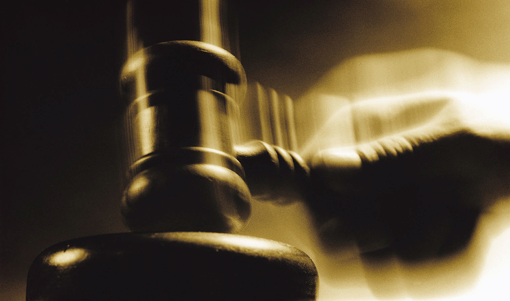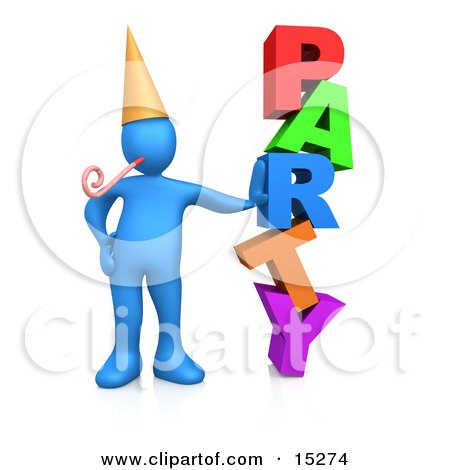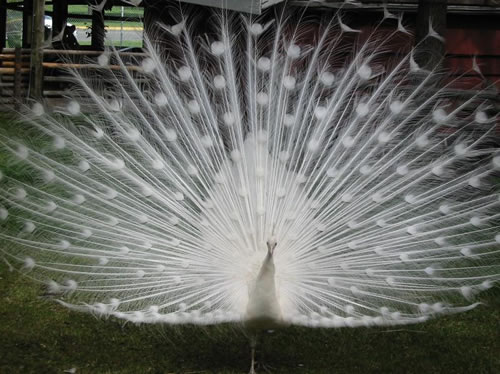The meeting starts on a high point of irony, the committee being seated under a painting representing the "Spirit of the Printed Word" Savour it people.
Jennifer Lynch was up first, alternating between English and French every few minutes.
She is pleased to be here and to contribute to the discussion. Introduces Philippe Dufresne (Who did not, for the record, speak).
The rights to equality and dignity and the rights to freedom of speech are not new. The role of the commission is to provide competent and balanced help in navigating this difficult issue.
Parliament established the Human Rights Act to help foster equality, in Canada we are committed to multiculturalism. The HR Act brings a powerful vision to Canada.
{Quotes Section 2 of Act} This is what inspires them.
The Human Rights Commission brings access to justice for the most vulnerable members of society. They have heard thousands of cases and achieved many victories. These victories include improving accessibility to public transportation, bank machines, and some television programming. Protecting workers from all kinds of harassment, supporting aboriginal rights, and supporting the rights of working mothers.
Discrimination and hate speech continue in Canada. Freedom from discrimination is a Charter right, thus it is ironic that people point to the Charter in support of unfettered freedom of speech.
This debate has been mostly decided by Parliament already. The Commission has narrowly applied Section 13 according to the Dixon ruling {quoted the Dixon ruling} The Macleans case is a perfect example of how well the Commission works. While the speech was offensive, it did not meet the strict criteria of hate speech and was therefore dismissed. This was the only case heard against mainstream media.
The Commission does not regulate offensive speech. Some people have been levelling unsubstantiated charges against the commission, even before this committee, referring to them as psychologically disturbed, dress-up Nazis, and comparing them to Saddam Hussein. Allegations made against commissioners Sandy Kozak and Dean Stacy are irresponsible, hurtful, and untrue.
The Commission serves the public interest and serves Parliament. They provided a complete and balanced analysis to Parliament on the situation. Professor Moon released his findings on the matter. After all the research was done, the HRC found that an administrative answer to hate speech, as well as the criminal code provisions, was necessary. The goal of the hate speech laws is to remove the hate speech; the goal of the Criminal Code is to punish the perpetrator.
The HRC recommends amending, not abolishing, Section 13. Hate Speech strikes at the core of equality. Canada must not waver in her commitment to equality.
Brian Murphy
The Committee heard Mr. Levant's evidence before, most of it seemed evidentiary and procedural. In Mr. Murphy's opinion there needs to be a broad debate on Section 13 and hate speech. Levant was arguing that we should limit it to the Criminal Code, speech that relates to violence. President Obama in America also seems to be moving toward similar legislation. Section 13 is not that. It prosecutes extreme speech that Justice Dixon described as being "extreme ill-will" and "calumny" These are very old fashioned words, do you think we need to update our terminology? Move towards a more American approach? Stay the same?
Jennifer Lynch
The HRC is here to protect equality. Hate speech can cause harm. It strikes at the root of equality and exposes people to discrimination and in extreme cases violence. The HRC is comfortable with the way Section 13 has been applied. The statistics speak for themselves in this regard. Of 70 or so complaints that have been brought to the commission only 21 were found to be hate. Of the 19 that went to the Tribunal, 16 were finally convicted. In a recent case the material was found to be hate speech but the law was not applied because of the penalty provision. In another case, neither of the parties showed up.
The HRC doesn't regulate offensive speech, Dixon only allows for the regulation of extreme speech.
The Act should be amended so that is clear.
Serge Menard
Mr. Menard has a good understanding of the Quebec system but didn't understand how important the federal commission was. He thought this was covered under provincial systems.
Now that the Tribunal has found Section 13 unconstitutional, where do things stand?
Jennifer Lynch
The Commission has appealed for judicial review. Section 13 was more often subject to penalty than mediation. We appealed because the Tribunal can't declare something unconstitutional because of the way it is applied.
Serge Menard
That was not his question, he wanted to know where it is now, is it at the appeal level?
Jennifer Lynch
The Commission is a screening body, the Tribunal hears cases.
The appeal will go to the federal court.
Serge Menard
How do you live with this?
Jennifer Lynch
The HRC always processes cases according to their rules and responsibilities. There is only once case in the works right now and we will only be seeking the public interest not penalties.
Serge Menard
The Moon Report recommended that Section 13 be repealed but suggested reforms if it was not repealed. What do you suggest?
Jennifer Lynch
The HRC filled its special report and in it they analyzed Moon's report. They recommend that Section 13 not be repealed. They recommend that it be reformed.
Moon suggested that the definition of hate should be inciting and condoning violence. The Commission does not agree because that definition is too narrow. Moon also brings up procedural issues, for example that only the commission, and not individuals could bring complaints. The Commission doesn't agree. However the Moon report was very helpful to the commission.
Joe Comartin
When Levant and Steyn were here they made very serious allegations. Has any analysis and investigation been done by the commission into these matters?
Jennifer Lynch
The HRC play a vital role in access to justice and thus we must have a fair and transparent process. Employees of the Commission have the strongest ethics and have not erred from them. This storm of allegation has unfortunately been taken as fact.
Canadians can have pride in the commission's employees.
Joe Comartin
Have you conducted a detailed investigation?
Jennifer Lynch
The HRC has conducted an internal inquiry and so has the RCMP and the Privacy Commissioner. There has been no breach of ethics or law by any employee.
Joe Comartin
Has any civil lawsuit been brought against Levant?
Jennifer Lynch
The HRC is a servant of the public, leaders and catalysts in equality.
The accusations are unfortunate and untrue.
Joe Comartin
Also libellous if not true.
Jennifer Lynch
The organization cannot bring libel suits. The Department of Justice will support legal costs in defence, not costs to bring charges.
The HRC has responded to these accusations in other ways.
The debate is how they balance two fundamental Charter rights.
Joe Comartin
Did you examine the practices in other countries with similar systems?
Jennifer Lynch
There are approximately 150 countries that signed legislation protecting people from hate and hate speech. Canada is one of the few that covers the internet. They could provide more information if desired.
Brent Rathberger
He is very confused and concerned. You say that the allegations are untrue and unsubstantiated.
You say there will be no libel suit because of the costs to individuals. The HRC doesn't have that downside because complainants don't need a lawyer.
Jennifer Lynch
Canada is fortunate enough to have a place where vulnerable people can go for justice.
Brent Rathberger
But defendants don't have that advantage?
Jennifer Lynch
They don't need council, the process is informal.
They have recommended that the Tribunal have authority to award costs in exceptional cases.
Brent Rathberger
Is there a Code of Ethics?
Jennifer Lynch
The HRC employees subscribe to the Public Servant's code of ethics. Their lawyers also subscribe to lawyer's ethics codes etc.
Brent Rathberger
Dean Stacey posted on a Neo-Nazi site under a false name. Is that ethical?
Jennifer Lynch
The Commission and its staff did no such thing. That event never happened. We have statute to investigate hate so staff did go to Nazi sites for that.
Brent Rathberger
Steacy said he had posted under Jadewarr.
Jennifer Lynch
Steacy did make one post, it had nothing to do with hate speech. He also engaged in a very bland email trail.
Brent Rathberger
Jadewarr was a private citizen's domain.
Jennifer Lynch
No it wasn't, you are getting confused.
Marlene Jennings
The HRC recommend a clear definition of hate speech as in the Taylor case. If that happens the commission should have power to dismiss complaints at an early date if it does not have jurisdiction over it. This power it does not currently have.
Why does the commission not have power to prosecute at the tribunal? The Commission is not a party in the complaint when it goes before the tribunal.
Jennifer Lynch
The HRC has power to initiate complaints and is in fact considering doing it more. A while ago the HRC represented the public interest in every case before the Tribunal but for various reasons they only do so occasionally now.
Lay people are confused and need clarification.
Marlene Jennings
Individuals should bring cases to the commission but the commission should prosecute at the Tribunal level.
Marc Lemay
Before you amend law you must be very careful. LeMay has read the Moon report. However he thinks that Section 13 would be difficult to amend as it now stands {Sec 13 1 and 3} Considering other HR Act sections we cannot just amend Section 13. He does not agree with repealing the section.
What about Section 13 is not working?
Jennifer Lynch
Section 13 cases represent less than 2% of HRC cases. One case in particular has become prominent. In response to this concern they did an in-depth analysis.
The HRC supports the amending of Section 13 so that it is better understood.
The HRC has an obligation to investigate every case in its jurisdiction. They think that this should be changed so that the commission can dismiss complaints early if needed.
Stephen Woodworth
You say that ordinary people don't have to fear being prosecuted for offensive speech. When he goes door to door and hears people talk about this, which he does, he doesn't hear fear. He hears a fierce affection for freedom of speech.
The Commission does have punitive measures such as speech bans. Mr. Woodworth was in the judicial system for over 30 years and even though there were extreme safeguards, the judicial system still made mistakes.
Constituents are concerned that free speech does not have the same safeguards. For example why not award cost in every case where the accused was innocent?
Jennifer Lynch
The HRC must find a balance between freedom of speech and freedom from discrimination. This balance was achieved in Taylor.
The HRC are an administrative body, the language of prosecution does not apply to them. The tribunal is quasi-judicial, they don't prosecute either.
The HRC follows justice, freedom of expression is protected as the statistics have shown.
Section 2 of the Charter protects freedom of speech. Section 15 protects equality and freedom of discrimination. Section 1 says that everything in the Charter is subject to reasonable limitations.
Stephen Woodworth
You missed my point, I was talking about procedure.
Richard Moon
In his report he recommended repeal of Section 13 and that hate speech cases should be handled by the Criminal Code.
Censorship should only be about violence. The failure to ban this type of extreme speech on the internet is a problem because on the internet it can avoid a critical public and encourage violence.
Other less extreme but offensive and harmful speech should not be banned because to do so would involve extraordinary state power and would damage freedom of speech. Other ways should be found to deal with this type of speech.
Freedom of speech is affected every time a complaint is heard, even if it is dismissed. The commission must hear all complaints that are not vexatious or trivial, and they may be reluctant to dismiss any case because to label it trivial would downplay the hurt feelings of the victim.
Individuals should not be complainants. Hate speech because of it’s nature, is usually only found by those who are looking for it or who stumble upon it. The burden in time, money, and in some cases threats, of going through with a hate speech case should not be born by individuals.
In addition, going on Neo-Nazi website is fraught with such ethical difficulties that it should not be handled by individuals.
The HRC shouldn’t be involved in hate speech cases.
The media seems to focus on people who are more interested in personal attacks than debate, they talk about things like a 100% conviction rate, racist postings, and “crazy” cases like the MacDonald’s cases.
Section 13 should be repealed.
Bernie Farber
For 90 years the CJC has represented the broadest cross-section of Jewry and advocated on their behalf. In Jewish tradition we believe that words are very powerful and that evil words can have evil consequences.
He introduces their President, Freiman, an expert in Constitutional law and involved in the Ernst Zundel case.
Mark Freiman
The CJC believes that it is important to protect the vulnerable. Section 13 is constitutionally appropriate because it only deals with dangerous speech. The CJC does not believe that the Criminal Code by itself is an adequate substitute.
It is not advisable to restrict hate speech laws to only material that advocates violence.
Section 13 is not without problems. There can be improvements in weeding out frivolous cases, speeding up the process, and protecting respondents.
There is a need to understand the context. Section 13 does not deal with speech in the abstract or even with all speech. It only deals with speech delivered via telecommunication methods. Censoring speech is common practice, TV networks for example do it all the time. Canada has defamation laws, contempt of court, advertisement laws, pornography rules, these are all limits on speech.
This legislation prevents harm and danger. Is hate speech harmful? Yes, you have only to look at Nazi, anti-Tutsi, etc. propaganda to know that.
Does Section 13 deal with only dangerous speech or also with politically incorrect speech? Only dangerous speech that dehumanizes, says that people are worthless based on their group. That such groups have no redeeming features.
Demonizing precedes violence. If society wants to protect people then it must start there, not with violence.
Human rights law appropriately focuses on messages not people.
Is Violence key? Violence is the spur but by that time it is too late. It must be stopped at the demonization stage.
The HRC is not dangerous or biased. The Dixon definition is a good one. There is also the appeals system as additional protection.
Things could be improved if the commission could reject complaints at an early stage, sometimes award costs, and have more specialisation.
Brian Murphy
Freiman said that words can do harm. He also reviewed Shakedown and agreed with Levant that there are some procedural issues.
Levant is a minority but makes that case that he can defend himself. Times have changed, the holocaust won’t happen again. Is he naïve? Would Section 13 or equivalent have prevented genocide?
Mark Freiman
No, Section 13 couldn’t have prevented genocide if other forces were in play. However the constant demonization of Jews helped Nazis by anesthetising the population so that they looked the other way when the holocaust started.
Yes, Levant is naïve, he believes history has stopped.
Brian Murphy
Do you think a balance has been struck in the tension between freedom of speech and anti-demonization?
Mark Freiman
There could be improvement.
Canada has a very broad definition of expression, even including such things as lap dancing and pornography.
Bernie Farber (I Believe)
Only 60 years ago over 6 million Jews were killed in one of the worst genocides in history. Just a few days ago in the Jewish Memorial Gardens swastikas and racist comments were written on tombstones in the sacred burial grounds. (Pictures of this were passed around)
Does Canada want to allow this?
Marc Lemay
If he heard correctly Freiman doesn’t want to appeal Section 13 but would support clarification. Mr. Lemay believes Section 13 is already quite clear.
Mark Freiman
Section 13 is already clear but you could amend it to include Dixon’s definition.
Marc Lemay
Is there really a need to include Dixon?
Mark Freiman
There is no need but it could be done if people want to.
There are administrative issues that can be improved. Specialization, dismissal of complaints, staff staying on the job and not rotating out.
Marc Lemay
Does Moon share your opinion?
Richard Moon
It would be more appropriate to repeal Section 13. Improvements could be made but they would not be good enough. If it was amended it should require intent and measure impact.
The cases finally convicted by the tribunal were very extreme., it is what comes prior to that which is the problem.
Joe Comartin (I believe)
Moon made a lengthier article submission to a law school, can the committee see that before it is published?
Richard Moon
That shouldn’t be a problem, it is a lengthier version of a speech he gave recently.
Joe Comartin (I believe)
How can demonizing speech be dealt with?
Richard Moon
Hate speech laws should only focus on violence. It is not necessary to prove that violence actually happened, but using violence is a measure of extremity. Indeed all of the Section 13 convictions were so extreme that they could almost be criminal.
There needs to be a consideration of intent.
Mark Freiman
These debates are profitable unlike some others.
The intent provision is dangerous. We need to focus on words not people. Dehumanization and demonizing are indirect incitements to violence. You will never be able to prove a state of mind.
Marc Lemay
Can Moon comment on specialization and intent?
Richard Moon
He didn’t look into specialization much. There is no reason why not, although it might not be practical.
There are criminal code provisions such as 320.1 which enables government to take down material without bringing charges. This is not used enough.
Brent Rathberger
It is reprehensible to defame Jewish headstones, synagogues, etc but what protection was Section 13 against that?
Mark Freiman Or Bernie Farber (Sorry)
Section 13 acts as an official denunciation. It may be superfluous but it may not be. Would taking down websites prevent this? He doesn’t know but it might be helpful if the internet wasn’t there to incite this kind of thing.
Brent Rathberger (I think)
They were criminal acts not covered under section 13
Mark Freiman Or Bernie Farber (Sorry)
Perhaps the use of civil cases could help to educate young people that this is not acceptable.
Brent Rathberger
His problem is “Likely to expose”. You said “demonizing and dehumanizing”, who gets to define that?
Moon says that Criminal Code is best, will section 319 need amending? Not advocating violence is not a criminal code defence.
Richard Moon
Yes there would be a need to look at the Criminal Code, it might be acceptable, he doesn’t know. There are concerns with issues like the Attorney General having to approve cases. That might need to be looked into.
Marlene Jennings
Commission should have carriage of case before tribunal.
Does not agree with Rathberger that demonization is subjective.
Richard Moon
In his report he did recommend that the committee have carriage.
Mark Freiman
Demonization is not subjective. The word “likely” as used in this law doesn’t mean anything, it is the same as if it said exposes someone to hatred.
Marc Lemay
He has his answers and is meditating on them.
Joe Comartin
Should there be a better definition of skills for commissioners?
Answer (Possibly Moon)
Yes, better control is always good.
Russ Hiebert
Alan Borovoy says section 13 stifles freedom of press, has no defence of truth, and is too vague. There is support for recovery of costs sometimes, why not always?
Richard Moon
He suggested repeal so did not give much thought to costs. It would make sense to have more support for people who are targeted.
The law does appear vague but legislation narrows it. The problem is not with the language of the law but it’s location within a body that regulates discrimination.
The HRC has a wide definition of discrimination, the hate speech laws require a narrow definition. Therefore the HRC should not be regulating it.










































